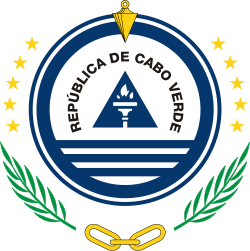2 October 2016 | |||||||||||||||||
| Registered | 361,221 | ||||||||||||||||
|---|---|---|---|---|---|---|---|---|---|---|---|---|---|---|---|---|---|
| Turnout | 35.47% | ||||||||||||||||
| |||||||||||||||||
 Results by constituency | |||||||||||||||||
| |||||||||||||||||
 |
|---|
Presidential elections were held in Cape Verde on 2 October 2016. [1] Incumbent President Jorge Carlos Fonseca of the Movement for Democracy (MpD) was re-elected with 74% of the vote.

